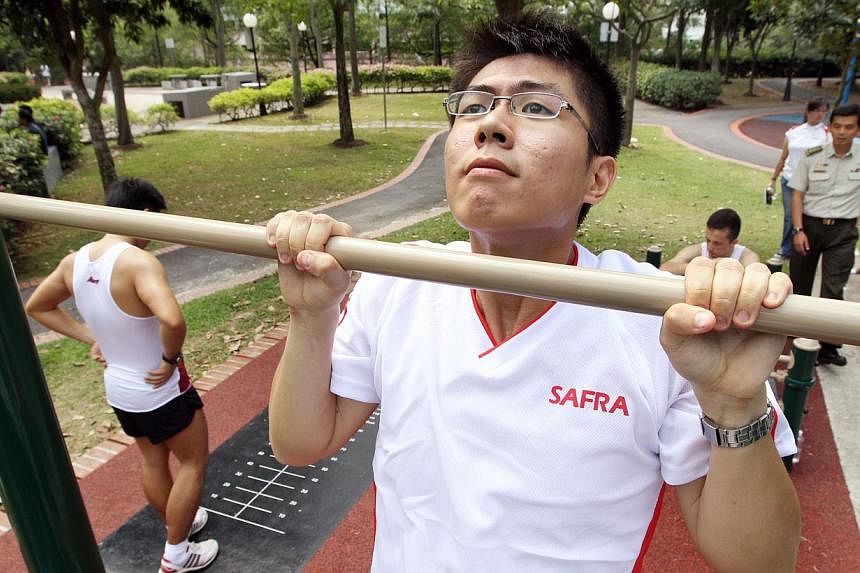AN EXTENDED training period to be introduced for the Individual Physical Proficiency Test (IPPT) will give servicemen more time to pass - but could also result in poorer fitness levels, warn exercise experts.
Currently, operationally ready servicemen (NSmen) have nine months to clear their IPPT, and if they fail, they have to do 20 sessions of remedial training (RT) over three months.
With the changes, they will get a whole year to train for and take their IPPT. And if they fail, they will get 12 months to attend RT, under one of 30 recommendations submitted to the Government last month by a high-ranking panel to improve National Service.
The recommendations, which were accepted on Tuesday, will be implemented over the next few years.
Most NSmen have backed the change. In the past, many complained about being unable to complete RT because of time constraints or the lack of availability at fitness centres in army camps, where training is conducted.
But fitness experts warn that the time extension might also lower fitness standards if participants do not do any exercise on their own, as they need to exercise three to five times a week to get fit.
Mr Mohammad Azhar Bin Yusof, senior lecturer at the National Institute of Education's Physical Education and Sports Science Academic Group, noted that spreading the 20 sessions over 12 months might help NSmen to better manage and juggle their various commitments.
"However, if they do not do any exercise or training on their own, they are unlikely to develop their fitness to a sufficiently good level to pass the IPPT," he said.
Fitness trainer Edmund Tan, who runs boutique gym Physical ABuse, believes that giving NSmen four times as long to train will not achieve the same results as putting them through a concentrated period of training.
"Consistency over time is very important," he said.
"If I worked out for 100 days and did not do anything for the following 265, it would not be as effective as spacing out my workouts to one session every three days."
He stressed that it was vital for NSmen, many of whom have jobs, to watch their diet and exercise regularly.
Agreeing, fitness instructor Keith Tan, who runs the Aileron Wellness gym, pointed out that it was important for RT to be a "fitness journey" for servicemen.
He recommended starting such training with 10 sessions over five weeks to "get trainees into the groove of things", and then spacing the remaining sessions across half a year after they become more motivated.
"Workshops, nutrition classes and activities can be held during RT to make it more educational and fun. Trainers should also help NSmen to set personal goals," he added.
NSmen who attend RT, such as financial services manager Kelvin Ng, 26, agree that doing the training only at army camps is not enough.
"We just go there and exercise for a short while. But if you don't do your own exercise after that, you will probably still fail," he said.
Fellow RT participant, civil servant Matthew Ong, 25, sees the change as one that will give him more control over his schedule.
He intends to keep up with his own routine of running and doing static exercises three times a week, on top of RT.
He said: "Keeping training flexible will make it more of a lifestyle choice than a chore."



